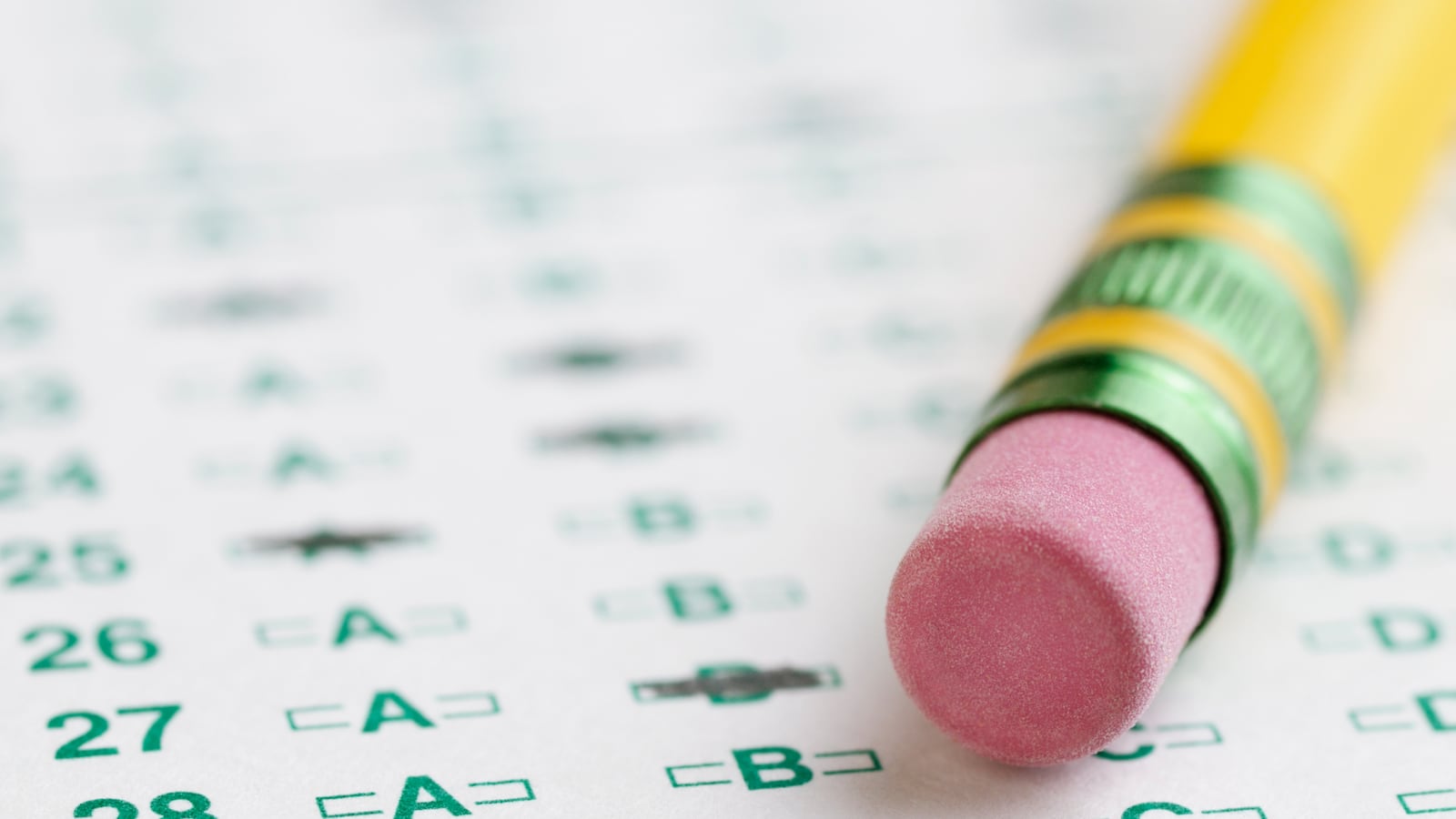“Mr. Sheehan, A and B are both right!” one of my 5th-grade students uttered through gritted teeth. He was so angry and stressed that he snapped his pencil in half. The difference between the two choices on the mandated, high-stakes state test was trivial. I wasn’t even sure which answer was correct.

On a different day of standardized testing, another student sat in her chair clutching her stomach. “I don’t feel well, Mr. Sheehan,” she pleaded. She wasn’t sick; she was terrified. I could see her 10-year-old body shaking from her nerves. What were we doing to this poor child to make her so fearful?
A third student has a severe learning disability, but was subject to the same tests and same scoring scale as general education students. Her prescription glasses broke right before the state tests. She took three grueling days of tests without those glasses, as her family couldn’t afford new ones. She scored a 1 out of 4, and, according to the state, was a failure.
As a Teach For America 2011 corps member, I spent the last two years teaching 5th grade at a charter school in Harlem. While two years is not a lifetime in teaching, I’ve observed two constants: teachers and students bravely struggling against daunting odds; and a national obsession with standardized testing that is ruining public education.
Our country is in the process of implementing a new national curriculum called the Common Core Standards. This implementation will cost us billions of dollars. California taxpayers alone will shell out over $1 billion to bring the Common Core to their state. The result of New York adopting the Common Core in 2010 was more practice tests and test prep for a harder test. All this testing is serving to squash creativity and the excitement of learning. We are ignoring children’s strengths, and spending precious time trying to ensure they can improve their weaknesses just enough to pass the test. It’s incredibly difficult to put out a child’s curiosity, yet we’ve done exactly that. Testing preoccupation has led to the arts, PE, history, and even sciences being downgraded—and replaced by test prep.
Based on conversations with other TFA corps members, many school visits, and my own experiences, I’ve concluded that there are two ways we can fix the problems testing is causing.
First, let’s demand high standards for English and Math—but also for the field trips students take, the research projects they conduct, and the science experiments they perform. Our testing obsession did come about for the right reasons. Only a few decades ago, students were graduating from high school functionally illiterate and lacking basic math skills. Testing was, and still should be, a way to ensure that children aren’t slipping through the cracks. The problem is not that we’re testing; it’s that we’re only testing. We have to stop teaching exclusively to the test, and put equal weight on social studies, science, PE, and the arts. Schools can reintegrate character education into our curricula; extra test prep periods should disappear and become forums for preparing the next generation of fathers, mothers, neighbors, coworkers, and citizens. Sadly, practice tests have become far too common. You don’t learn from taking more tests, just like you don’t lose weight by simply weighing yourself more often.
Alternatively, we can keep our testing obsession, but make the test so valuable that it becomes worth teaching to. My 5th-graders lacked vital world knowledge that most of us take for granted, like the difference between a city, state, country, and continent. Fine, let’s have the test, and make it determine the survival of teachers and schools. The content should involve major world conflicts, what presidents advocated for which causes, what nations have experienced what crises, and analysis of important texts with information that is taught during the year. If students are supposed to master determining the theme of a text, the text in question must be relevant to their curriculum. Education professor E.D. Hirsch Jr. outlined this idea in a 2009 New York Times op-ed about testing, in which he pointed out that “the key to comprehension is familiarity with the relevant subject.”
Classes should center around discussions, field trips, debates, and projects. These can serve as test prep. Visiting a Revolutionary War battlefield or taking a tour of Ellis Island can prepare students to have the necessary prior knowledge to comprehend texts of these time periods.
Teach for America has a dual mission: placing energetic college graduates in some of our poorest schools to teach, and preparing each corps member for a life where they advocate for these children in some way. And, if you ask me, one of the best things Teach for America alums can do to advocate for children is to speak honestly about how testing mania is taking our country’s public schools further away from their goals.




